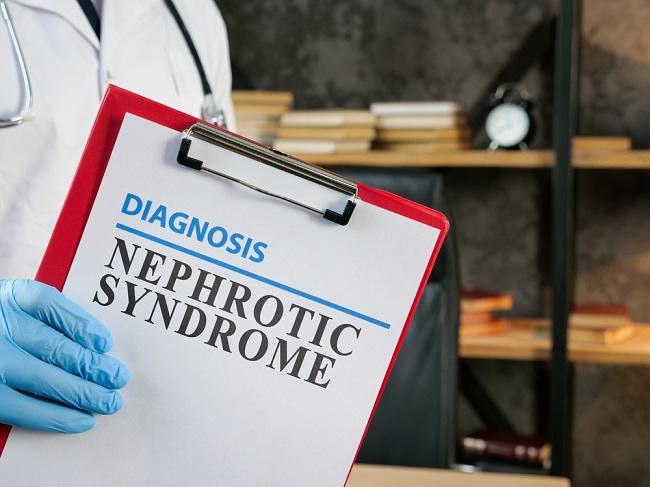Nephrotic Syndrome, Signs of Kidneys Not Working Properly
Nephrotic syndrome bis not a disease, but a group of symptoms indicating that kidney is not functioning properly. This condition occurs due to damage the filtering function of the kidneys and is usually identified by swelling in the legs.
Nephrotic syndrome can occur in both children and adults. In adults, more than 50% of cases of nephrotic syndrome occur as a complication of certain conditions, such as diabetic nephropathy or lupus.

Causes of Nephrotic Syndrome
Nephrotic syndrome occurs due to damage to the small blood vessels in the kidneys which are responsible for filtering blood and waste substances, and producing urine.
Under normal conditions, protein should remain in the blood. However, in people with nephrotic syndrome, protein passes through the filter and is excreted along with the urine
In addition, there are several other diseases that cause kidney damage and trigger neutrophic syndrome, such as:
- Suffers from diabetes
- Suffers from lupus
- Suffers from amyloidosis
- Consuming non-steroidal anti-inflammatory drugs (NSAIDs)
Symptoms of Nephrotic Syndrome
The main symptom of nephrotic syndrome is swollen feet due to low levels of protein in the blood. Low protein levels make more fluid retained in the blood, causing swelling. This condition is more easily seen on the feet due to the influence of gravity.In addition to swelling, nephrotic syndrome also causes the following symptoms:
- Foamy urine
- Weight gain
- Tired constantly
- No appetite
- Hypoalbuminemia
- High cholesterol level
In children, nephrotic syndrome can cause swelling in the face that continues throughout the body.
Treatment of Nephrotic Syndrome
Treatment of nephrotic syndrome depends on the cause. The goal of treatment is to prevent kidney damage from getting worse
Before giving treatment, the doctor will first ask about the patient's symptoms and medical history. After that, the doctor will carry out a physical examination and supporting examinations, such as urine tests, blood tests, and even a kidney biopsy if needed.
After it is confirmed that the complaint is caused by nephrotic syndrome, the doctor will provide medicines to help control the symptoms of nephrotic syndrome, as well as prevent complications due to nephrotic syndrome. The following are medicines given by the doctor:
1. Blood pressure medication
This drug works to reduce blood pressure by relaxing blood vessels. Examples of blood pressure medications include lisinopril, perindopril, and enalapril.
2. Diuretic drugs
Diuretic drugs function to increase urine production, thereby indirectly reducing swelling. Furosemide is an example of a diuretic drug prescribed by a doctor.
3. Blood thinning drugs
Anticoagulants or blood thinners work to reduce the risk of blood clots. This condition is a complication of nephrotic syndrome. Doctors can prescribe heparin as a blood thinner to treat nephrotic syndrome.
4. Drugs that suppress the immune system
If nephrotic syndrome is caused by a disorder of the immune system, the doctor will prescribe drugs that suppress the immune system. The purpose of prescribing this drug is so that the body's immune system does not further damage the kidneys. An example of a drug from this class is rituximab.
In addition to taking medication, people with nephrotic syndrome must also change their diet by increasing consumption of vegetable protein, reducing consumption of salty foods, avoiding fatty foods and foods high in cholesterol. That way, the healing process can be faster.
If you experience symptoms of nephrotic syndrome, such as swelling followed by foamy urine, especially if you have a history of diabetes and lupus, you should consult a doctor to get the appropriate examination and treatment. Appropriate immediate treatment is very useful in preventing complications due to nephrotic syndrome, including kidney failure Label : Health
Comments
Post a Comment